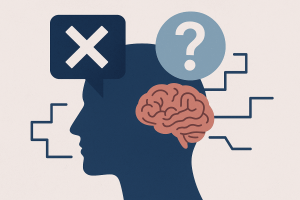THE COACH (LEADER) AND HIS EMOTIONS
Jorge Araújo
President of Team Work Consultores
Coaches (leaders) need to know how to live with their emotions and experiences and redirect them in the service of an obvious improvement in their ability to influence and persuade those they work with. They must also be able to preserve their resilience, constantly challenging acquired beliefs that sometimes provoke negative emotions. Above all, they must fight as persistently as possible to replace old habits with new ones and, as coaches (leaders), be able to anticipate and correct any emotional reactions that harm the collective interest, assuming that emotions and feelings are something they live with every moment of their lives and to which they must give due importance.
If truth is the whole, as Hegel wanted, the truth of training is the experience of human complexity. That’s why there is no paradigmatic training that doesn’t take into account the context, the global, the multidimensional, the complex. [1]
While it’s obviously true that emotions sometimes escape our control and lead us to unexpected reactions, only by living with them will we be able to leverage the emotions of others as effectively as possible, as well as mobilizing our own capacity to motivate and overcome, and that of all those we relate to.
Human behaviors thus have no meaning in themselves and can only be understood when they are referenced to experienced reality, through a body that learns and trains its motor skills by persistent trial and error, in a continuous automatic incorporation of the necessary motor responses.
In fact, the logic of human motricity is the option of transcendence, the passage in asceticism of the human will from determinism to freedom. And so the awareness of incompleteness is not a sign of deficiency, but an indispensable condition of human development. [2]
A body that, in its double transcendence, on the one hand is a subject body and, on the other, reveals the intentionality with which it involves time and space and coexists and interacts with other bodies and everything that surrounds it. Phenomena such as first impressions or the fact that we often perform tasks unconsciously, also prove the importance of our body schema and our ability to inhabit the world and get used to it in behavioral training.
The same goes for the body consonance shown between two human beings when they reveal an automatic and unconscious body attunement in the course of a conversation. Also the emotionally negative effect that certain gestures, tones of voice or facial expressions have on us, as well as the countless times we perceive the intentions of those around us simply by observing their attitudes and behavior.
This emotional contagion and the viral way in which emotions spread, as well as the fact that we are always communicating, even when we don’t speak, illustrate the immediate incorporation we make of the emotional manifestations of those around us.
It’s not enough to know how to do and how to say things, you also have to know how to live. [3]
As human beings, we are authentic mirrors, through continuous perceptual empathy, as if we were appropriating the emotions of others and incorporating them, virtually putting ourselves in their shoes and transporting what others feel into our body schema.
A true existential phenomenology and corresponding coexistence, where our limbs and organs form a system and act in a complementary way and as a whole, through a body schema as a sensory and motor unit that helps us to become globally aware of our body posture in the face of each task to be carried out and to express ourselves through our body in the world.
Take, for example, how in a sport, the space of the playing field teaches players to improve through their spatial movement. Or in a free game (on the street), how young people or adults are confronted with the pure knowledge of spatial relations and intertwined in a plastic, constantly dialectical relationship, in which the circumstances and contexts created teach what to do and the real situation corresponding to the game is a powerful means of learning and training.
And all of this requires of the coach (leader) an enormous capacity to establish a positive relationship with those he works with. Creating contexts/structures that foster positive relationships and training habits in a constant phenomenology of the body, space and its relationship with others. As well as in a mutual relationship in which the coach (leader) and those he prepares develop positive interpersonal relationships and constantly share their emotions and experiences in an attuned way.
I’ve been defending it for years and I insist, Everything can be trained!, [4]
And only by training and learning to do, by doing, will we be able to subvert the traditional alternatives between psychic and organic on which coaches have so far based their way of thinking and intervening. After all, we are all motivated or motivatable, we simply need to be convinced that the challenges we face are ours.
We relate to everything around us not in a blind way, but in a constant interaction between our body as a whole and our environment. When we are part of a certain social, family or professional context, we are always and simultaneously influencing and being influenced by it, adding to our experiences. When we finally adopt certain attitudes and behaviors, we always do so according to what we encounter (a given situation) and through the whole body (the whole being), behaving as an indivisible being, fully present at all times and whose senses complement and interact with each other.
Training will be all the more pedagogical the more it becomes a space open to dialog and critical reflection between the various members of the same team. Training must therefore be committed to the creation of mental structures and a phenomenology of the imagination (Bachelard), which allow a break with rationalist anthropological reductionism and with all systems where the voice of the coach or the will of the manager always emerge as indisputable, indubitable, a-dialectical[5].
This reinforces what we said when we said that, in the true dimension of our social intelligence and intuition, we not only need to know how to live with our emotions and feelings, but we also need to be able to leverage the emotions of others as effectively as possible.
[1] Sérgio, M., Alguns Olhares sobre o Corpo, 61
[2] Sérgio, M., Alguns Olhares sobre o Corpo, 35
[3] Sérgio, M., Alguns Olhares sobre o Corpo, 47
[4] Araújo, J., Tudo se Treina, (Lisboa, Imprensa Nacional, Casa da Moeda, 2014)
[5] Sérgio, M., Alguns Olhares sobre o Corpo, 65





